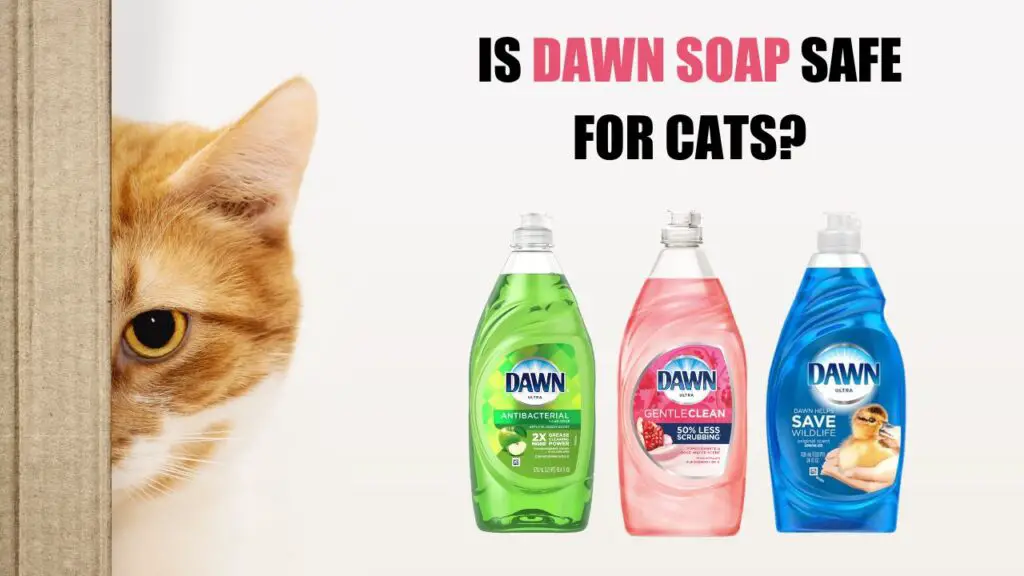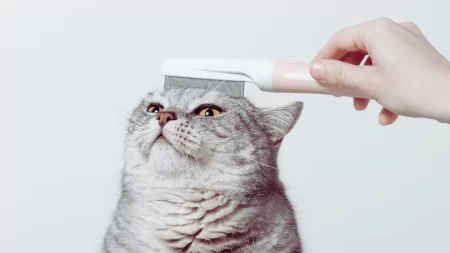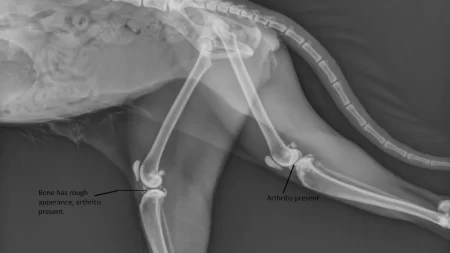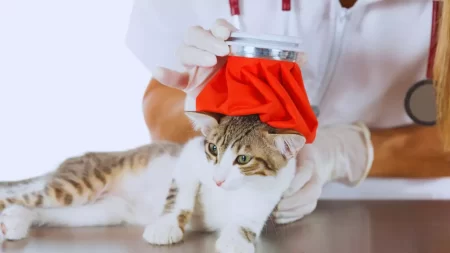The answer is yes and no. Dawn soap is typically safe to use on cats, especially those with fleas. It contains surfactants that can break through the wax layer of fleas and drown them.
However, Dawn soap is not formulated for cats and can strip their natural oils and cause dryness or irritation.
Cats suffering from a skin allergy or having wounds should not be treated with Dawn dish soap.
It’s always a better idea to use shampoos specially designed for cats that are gentler on their skin and coat.
Dawn soap should only be used as a last resort and not frequently.
The Benefits of Dawn Soap for Flea Removal
Some of the benefits of using Dawn soap on cats are:
- It can kill fleas, eggs, and larvae effectively and quickly
- It can remove dirt and debris from the cat’s fur and skin
- It is non-toxic and biodegradable, which makes it safer for the cat and the environment
- It is cheap and easy to find in most stores
- It can be used on young kittens who cannot use commercial flea products
The Risks of Dawn Soap for Cat Skin and Coat Health
Some of the risks of using Dawn soap on cats are:
- It can strip the natural oils and moisture from the cat’s skin and coat, which can cause dryness, irritation, flaking, and itching.
- It can alter the pH balance of the cat’s skin, which can make it more prone to infections and allergies.
- It can cause a negative reaction in some cats who are sensitive to the ingredients or the fragrance of Dawn soap.
- It can pose a choking hazard if the cat ingests too much of the soap or if it gets stuck in the cat’s throat.
- It can be harmful if it gets into the cat’s eyes, ears, nose, or mouth.
How to Use Dawn Soap Safely and Effectively on Cats?
To safely and effectively use Dawn soap on your cat, follow these steps:
- Opt for the original and unscented version of Dawn soap, which is milder and lacks fragrances that may irritate your cat’s skin.
- Dilute the Dawn soap with water at a ratio of 1:5 since it is highly concentrated and undiluted use may dry out your cat’s skin.
- Wet your cat’s fur with warm water, then gently apply the diluted Dawn soap, massaging and lathering it into the fur. Pay extra attention to areas that are particularly dirty or infested with fleas.
- Thoroughly rinse your cat with warm water, ensuring that all traces of soap are removed from the fur. Soap residue can cause itching and irritation for your cat.
- Use a towel to dry your cat, and keep it in a warm place until completely dry. Additionally, brushing your cat’s fur can help eliminate any dead fleas or dirt.
- Repeat this process every few days until you are confident that your cat is free from fleas. You can also utilize a flea comb to remove any remaining fleas from your cat’s fur.
Are there specific dilution ratios of Dawn soap recommended for cat bathing?
The recommended dilution ratio of Dawn soap for cat bathing is 1 part Dawn soap to 5 parts water.
This means that for every cup of water, you should use about 1 teaspoon of Dawn soap.
This will help prevent the soap from being too harsh or drying on your cat’s skin and coat.
You should also avoid using too much soap or leaving it on your cat for too long, as this can cause irritation or toxicity.
Always rinse your cat thoroughly with clean water after using Dawn soap.
Alternatives to Dawn Soap for Cat Flea Prevention and Treatment
While Dawn soap can be effective in killing fleas on cats, it is not the best or the only option. There are other alternatives that can prevent and treat flea infestations on cats, such as:
- Lemon juice: Freshly squeezed lemon juice can also break through the wax layer of fleas and drown them. You can use 1 part lemon juice to 3 parts water and spray it on your cat’s fur. Use a flea comb to remove the fleas as you spray.
- Apple cider vinegar: This works like lemon juice because it’s acidic, but it may not be as effective. You can use 1 part apple cider vinegar to 2 parts water and spray it on your cat’s fur. Use a flea comb to remove the fleas as you spray.
- Essential oils: Essential oils, like lavender, peppermint, eucalyptus, and rosemary, repel fleas from your cat’s fur. However, be cautious as some essential oils can be toxic to cats if ingested or applied directly to the skin. Always dilute them with carrier oil, such as coconut oil or olive oil, and use them sparingly. It’s advisable to consult your veterinarian before using essential oils on your cat.
- Coconut oil: Coconut oil contains lauric acid which suffocates and kills fleas. Apply coconut oil directly to your cat’s fur and massage it into the skin while using a flea comb to remove the fleas.
- Flea collars: Flea collars, worn around the cat’s neck, release chemicals that repel or kill fleas. They are cost-effective and provide protection for several months. However, some cats may have allergic reactions, and the collars may not effectively protect the entire body from fleas.
- Oral medications: Oral medications like nitenpyram or spinosad kill adult fleas shortly after ingestion. They are usually given as pills or chewable tablets. However, they don’t prevent new fleas from infesting your cat and may cause vomiting or diarrhea as side effects. It’s important to use them alongside preventive measures and environmental management.
- Topical medications: Topical medications like fipronil or selamectin are applied to the back of the cat’s neck and spread throughout the body via the bloodstream. They eliminate adult fleas and prevent the development of eggs and larvae for around a month. These medications are easy to apply and have minimal side effects. However, their effectiveness may decrease if the cat frequently gets wet or bathed. Environmental management should also be combined with their use.







